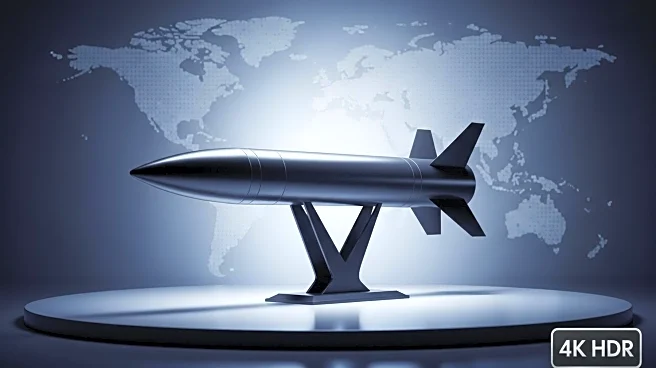What's Happening?
President Alexander Lukashenko of Belarus, a close ally of Russia, has issued a stark warning regarding the potential consequences of the United States supplying Ukraine with long-range Tomahawk cruise missiles. Lukashenko stated that such an action could escalate the conflict to a nuclear war. This warning comes as U.S. President Donald Trump is considering a request from Ukrainian President Volodymyr Zelensky for these missiles, which would enable Ukraine to target deep inside Russian territory, including energy infrastructure and military bases. Lukashenko emphasized that the deployment of Tomahawks would not resolve the ongoing conflict but rather increase tensions, potentially leading to nuclear confrontation. The situation remains tense as both sides weigh their options in the ongoing conflict.
Why It's Important?
The potential provision of Tomahawk missiles to Ukraine by the United States could significantly alter the dynamics of the Russia-Ukraine conflict. If President Trump decides to supply these weapons, it would mark a substantial escalation, potentially bringing Kyiv's forces within striking distance of Moscow. This move could increase pressure on Russian President Vladimir Putin to negotiate peace but also risks provoking a severe response from Russia, including the use of nuclear weapons. The decision holds significant implications for international security and the geopolitical balance in Eastern Europe, affecting U.S. foreign policy and its relations with both Russia and Ukraine.
What's Next?
As President Trump deliberates on the request for Tomahawk missiles, the international community is closely monitoring the situation. Any decision to supply these weapons could lead to heightened diplomatic tensions and necessitate further negotiations to prevent escalation. The U.S. administration may face pressure from allies and adversaries alike, with potential diplomatic fallout depending on the outcome. The situation remains fluid, with possible developments in U.S.-Russia relations and broader implications for global security.
Beyond the Headlines
The ethical and legal dimensions of supplying advanced weaponry to a conflict zone are complex. The decision could set a precedent for future military aid and influence international norms regarding arms transfers. Additionally, the potential for nuclear escalation raises significant moral questions about the responsibility of nuclear powers in preventing such outcomes. Long-term shifts in global security policies and alliances may be triggered by this development.









